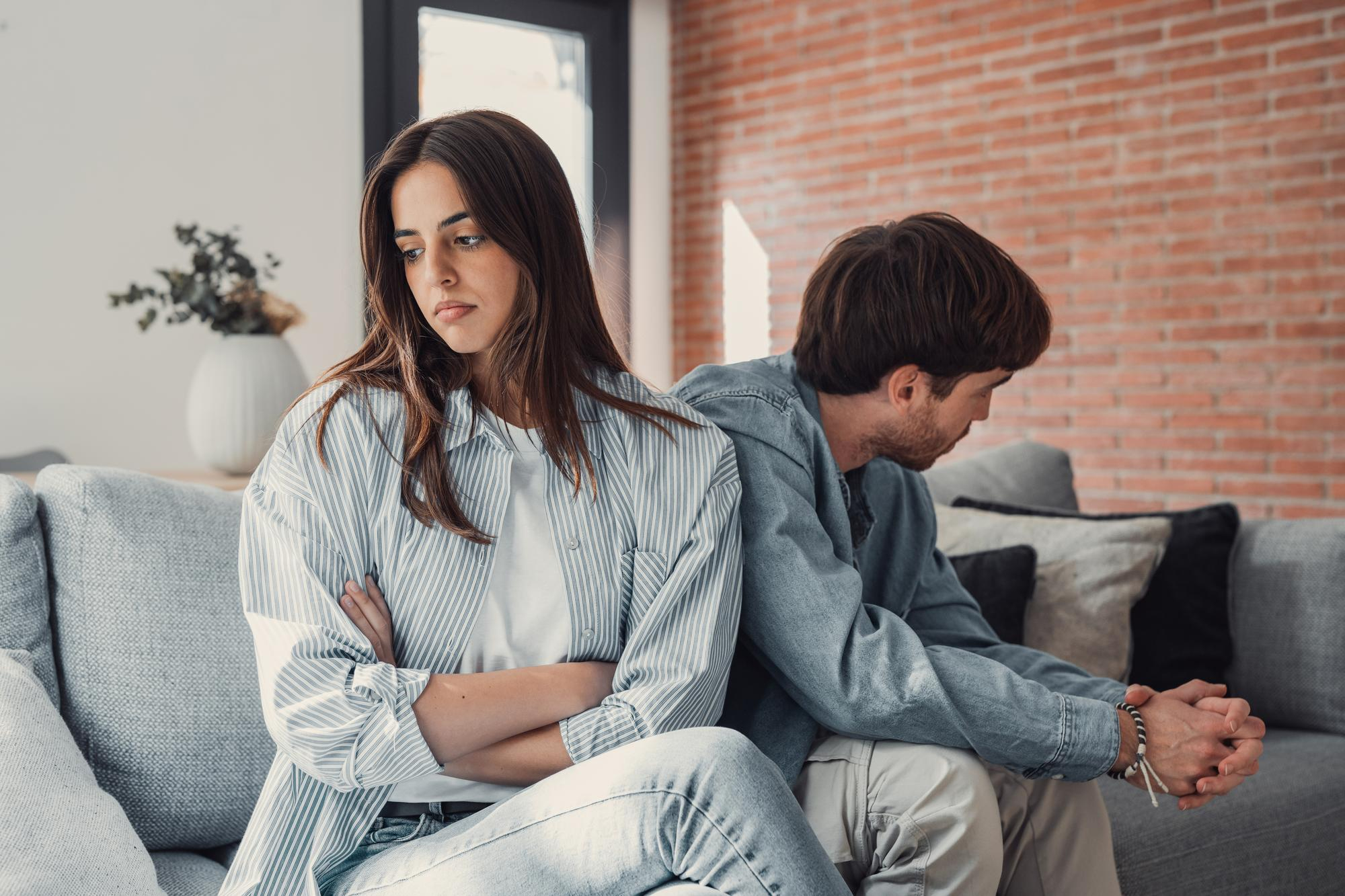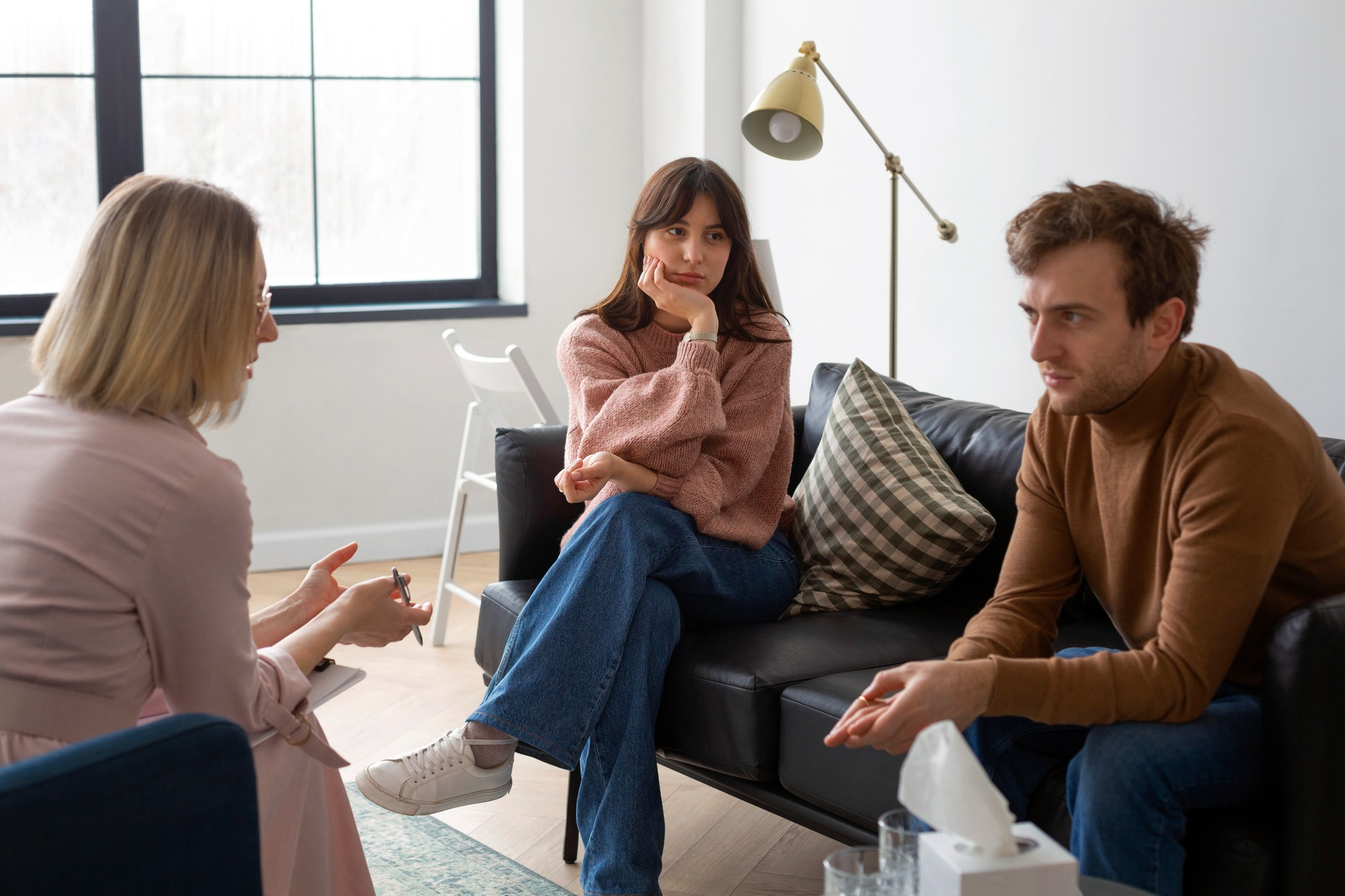How Couples Counselling Helps Resolve Common Relationship Conflicts
Last Updated on June 25, 2025 by Manassa Shrikanth

Conflict in relationships isn’t a red flag – it’s human. In fact, it’s a natural part of any healthy relationship!
But when those conflicts become patterns that keep repeating, it can leave even the strongest couples feeling distant, frustrated, or disconnected. That’s where couples counselling comes in.
Across Australia, many couples are seeking counselling – not because they’re failing, but because they care enough to work through issues proactively and grow together.
In this blog, we discuss common relationship conflicts you can explore in counselling and five ways in which couples counselling helps you build a conflict resolution skillset.
Every relationship has its challenges. However, if the same issues keep showing up, it can be a sign that something below the surface needs to be addressed.
Recurrent and unaddressed conflicts are a common reason why relationships struggle. The good news is that couples counselling can help you with just that!
Here are five of the most common relationship conflicts couples bring to counselling, and how therapy helps address them:
Do you find you and your partner fighting about the same issue over and over, without ever reaching a real resolution?
These recurring arguments can often stem from unmet emotional needs, miscommunication, or other deeper, unvoiced concerns.
Couples counselling helps you identify the patterns underlying the conflict and teaches you new ways to communicate, so that you can move from fighting each other to fighting for the relationship.
Priya and Jene are a couple from Melbourne. Every time they discuss visiting their families, it ends in some variation of the same argument.
Priya feels like Jene avoids visiting her side of the family, while Jene feels overwhelmed by the expectations to see them, even though she isn’t comfortable doing so.
Through couples counselling in Australia, they realise how the unspoken expectations feel unfair to Jene and why exactly she is uncomfortable visiting Priya’s parents.
With the help of a couples counsellor, they learn to voice their needs without shame, guilt, anger or blame. Slowly, Priya develops empathy for Jene’s perspective while Jene starts providing the emotional reassurance that Priya needs.
Whether it’s unresolved betrayals, past relationships, or unfinished arguments, emotional wounds can quietly linger, build up and affect relationships over time.
In couples counselling, a trained counsellor guides you through acknowledging, processing and understanding these wounds and the feelings they bring up. Slowly, you can work through past issues and rebuild trust.
When one partner feels like they’re carrying the emotional (or practical) weight of the relationship, they may start feeling let down, undervalued and unseen. These feelings, in turn, can lead to burnout and resentment.
Couples counselling can help you and your partner uncover any underlying imbalances, explore and understand each other’s needs, and re-establish shared responsibility.
Money, chores, career moves – these aren’t just logistics, they’re shared decisions and responsibilities. Hiding behind them is a mix of values, priorities, and expectations (said and unsaid).
Disagreements in these areas are some of the top causes of relationship conflict and stress. Couples counselling can help you address these in a neutral space and reach a middle ground.
In addition to that, couples therapy also equips you with tools and skills to handle future conflicts effectively and with empathy.
No two people are completely alike, but at the same time, differences in core values, beliefs or parenting approaches can be hard to navigate.
You can explore conflicts arising from such differences in couples counselling. A counsellor in Australia can help you examine these differences with curiosity rather than judgment, building mutual understanding and respect.
Over the course of counselling sessions, you can clearly understand your negotiables and non-negotiables and find middle ground for the latter.

When approached with the right support and armed with the right tools, conflict can be an opportunity for growth and deeper connection.
Research indicates that the way conflict is handled is directly linked to marital and relationship satisfaction among couples in Australia.
Below are some ways in which couples counselling helps with conflict resolution in relationships:
Many relationship problems aren’t caused by what’s being said, but by how it’s being said (or not said at all).
Couples counselling teaches you how to listen without defensiveness, express yourself honestly, and communicate in ways that foster trust rather than tension.
Couples counselling can teach you and your partner various tools, techniques and skills such as:
Studies show that even a five-second time-out can help diffuse a heated argument!
Sam and Jordan come to couples counselling with one major issue: their arguments always escalate. What begins as a simple disagreement quickly turns into a shouting match, leaving them both feeling exhausted, unheard and angry.
Through couples counselling in Australia, they learn to spot the warning signs of escalation early and use tools like time-outs and ‘I’ statements to de-escalate.
After a few weeks of practice, they start handling disagreements with mutual respect and empathy.
When you’re in the middle of a conflict, it’s easy to get carried away and view your partner as the ‘problem’.
Couples counselling can help shift the perspective away from blame, shame and judgment and instead encourage empathy and mutual understanding.
Over the course of couples counselling in Australia, you can learn to step into your partner’s shoes and understand where they’re coming from.
Empathy lays the foundation for a relationship that’s built on trust, respect and connection.
Let’s face it – some heavy topics can be hard to discuss, especially when you know they’re bound to get heated.
In couples counselling, a trained therapist guides your conversations, ensuring both you and your partner feel heard and supported. They create a safe, non-judgmental space where even the most difficult topics can be gradually explored.
Conflict can leave you feeling like you and your partner are on opposing sides.
Through couples counselling, you can distance yourself from the situation, remember why you chose each other, reconnect emotionally, and learn to approach problems as a team, not as opponents.
Slowly, you’ll work towards finding solutions and not ‘winning’ the argument. That sense of ‘we’re in this together’ can often make all the difference!
Let’s clear up this common confusion that many people have: How are marriage therapy and therapy for couples different from each other?
Couples counselling is a broad type of counselling that’s open to all types of couples, such as:
Thus, the only requirement for couples counselling is that the individuals engaging are in a relationship (which can be of their own definition).
Marriage therapy, on the other hand, is a subset of therapy for couples which caters to married couples in particular. Marriage therapists are generally couples counsellors who specialise in marriage therapy.
Often, it’s merely a semantic difference. If you’re a married couple looking for a therapist who specialises in marriage therapy, you can opt for the same. However, any type of couple can choose to engage in couples therapy.
Just like all types of therapy, there’s no set timeline for couples counselling. On average, most couples engage in four to eight sessions. However, the exact number of sessions may differ from couple to couple.
While some couples may need only a handful of sessions, others may require a few months to explore deep issues.
Your couples counsellor will work alongside you to create a therapeutic plan, laying out your goals as a couple and the number of sessions you’ll need to achieve them.
Yes! Couples counselling can improve communication in relationships. A professional counsellor can teach you various practical tools and techniques to communicate better, such as:
Online couples counselling in Australia is as effective as in-person couples counselling. In fact, online couples counselling can be an ideal choice for partners who don’t live together.
Although this is a common misconception, couples counselling is for all couples – those who have just started dating, those in long-term relationships, engaged couples, as well as married couples.
Premarital counselling and marriage therapy are simply types of therapy for couples that are tailored for engaged couples and married couples, respectively.
Yes – although it’d be much easier to prevent conflicts or nip them in the bud proactively, couples counselling can help you unpack years of disagreements as well.
It might take a little longer, but with consistent effort and regular sessions, you’ll be on your way to understanding the roots of your arguments and learning healthy conflict resolution techniques.

Through couples counselling in Australia, you can learn actionable strategies, understand each other’s love languages, and deepen your relationship.
Here are some key takeaways on how couples counselling helps resolve common relationship conflicts:
If you and your partner are navigating conflicts and would like to explore couples counselling, click here to browse accredited couples Therapists at TYHO.
Couples therapy can be a powerful tool in strengthening your relationship – get started today!
